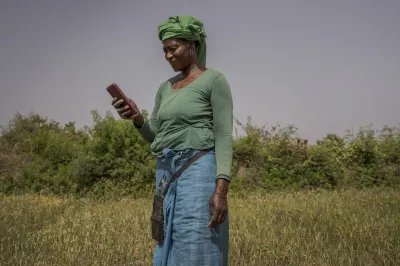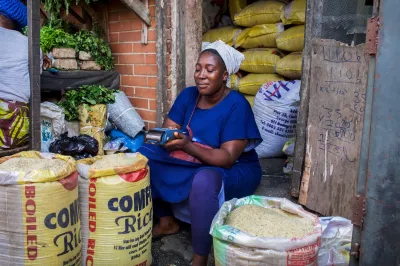The Next Financial Inclusion Challenge: Private Sector Leadership
World leaders are embracing financial inclusion at an accelerating pace. In May, the UN High-Level Panel chaired by Liberia‘s President Johnson Sirleaf, Indonesia’s President Bambang Yudhoyono, and the UK’s Prime Minister David Cameron, presented the recommendations for the post-2015 UN Development Goals, which included universal access to financial services as a critical enabler for job creation and equitable growth. In September, the G20 reaffirmed its commitment to financial inclusion as part of its development agenda. And most recently, during the IMF/World Bank Annual Meetings earlier this month, World Bank President Jim Kim called for collective action to reach universal financial access by 2020.
World leaders do this because they know that an inclusive financial system that responsibly reaches all citizens is an important ingredient for social and economic progress for emerging markets and developing countries. At the microeconomic level, it helps poor households and small businesses generate income, build assets, smooth consumption, and better manage risks. At the macroeconomic level, the depth of financial intermediation under most circumstances spurs growth and reduces inequality. An inclusive financial system also helps governments to better execute social policy in other priority areas such as education and health, for example through more targeted financial transfers.
Despite the political tailwind, half of the working-age adults globally – 2.5 billion people – remain excluded from formal financial services. Instead, they have to rely on the age-old informal mechanisms of the moneylender or pawnbroker for credit or the rotating savings club and vulnerable livestock for savings. These informal mechanisms tend to be unreliable and can be very expensive.
What needs to happen to meaningfully advance financial inclusion for the poor – an end-state in which everyone has access and can use the broad range of financial services they need to improve their lives? World Bank President Kim has identified 2020 as a target for achieving universal access to basic transaction services via mobile money, debit cards or simplified bank accounts. This is an important first step towards that broader range of services.

Photo Credit: Joel C. Forte
The key critical element at this juncture is stronger private sector engagement and leadership. To meet the massive challenge of including the 2.5 billion people without access, financial services need to be delivered sustainably and at scale. Charity won’t do. This requires local resource mobilization and responsible market development, which cannot be decreed by the G20, the UN, or the World Bank.
In the end, for responsible market development to be sustainable, services have to be viewed as valuable by consumers and as economically viable by providers. Local provider ecosystems that eventually reach all citizens of a country will comprise a large number of front-end entities trusted in the community such as banking agents, cash-in/cash-out outlets or microfinance institutions; a payment infrastructure that links these institutions to the broader financial system; and a smaller number of well-capitalized and regulated entities that hold and manage the financial risks that the more inclusive system has originated. The relevant private sector actors for the required market development are thus a myriad of local players; and the right level of engagement is at the individual country or even sub-national market level.
This private sector engagement must ultimately involve national-level regulators and national financial services providers as well as other stakeholders to identify barriers to business viability in their market and to put the right infrastructure (e.g., a unique national identity that also serves the purpose of financial customer due diligence) and regulatory frameworks in place.
In an important effort to advance and showcase the right type of dialogue at the global level, the Financial Inclusion 2020 effort by the Center for Financial Inclusion at ACCION, an international microfinance network, is gathering industry representatives at the end of October in London, supported by a number of leading institutions in the Financial Inclusion space. On the agenda are global topics and ideas such as a potential financial inclusion roadmap, but the program also features specific country lessons from Peru and India. This type of global dialogue is an important part in a broader agenda that needs to move to the national level in a larger number of countries to make a meaningful dent against the ambitious financial inclusion objectives formulated by the world leaders.
Tilman Ehrbeck is CEO of CGAP.




Add new comment